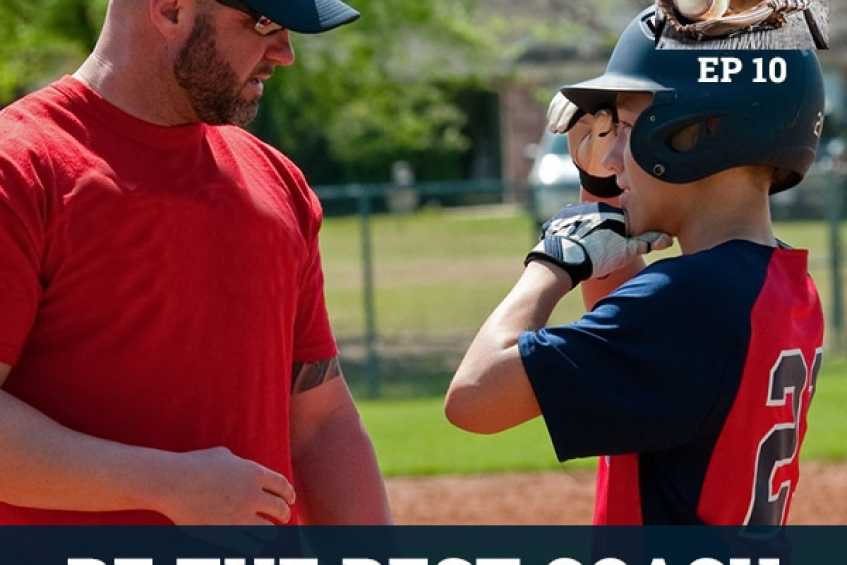
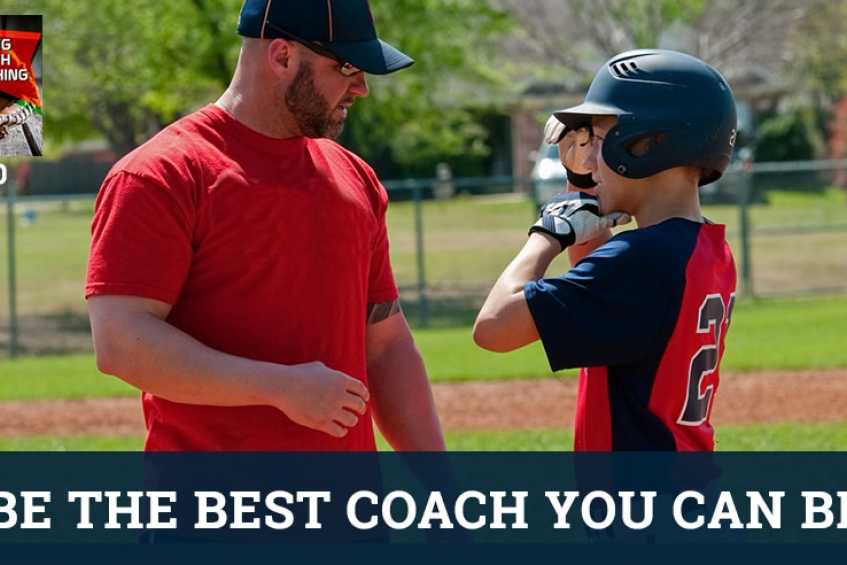
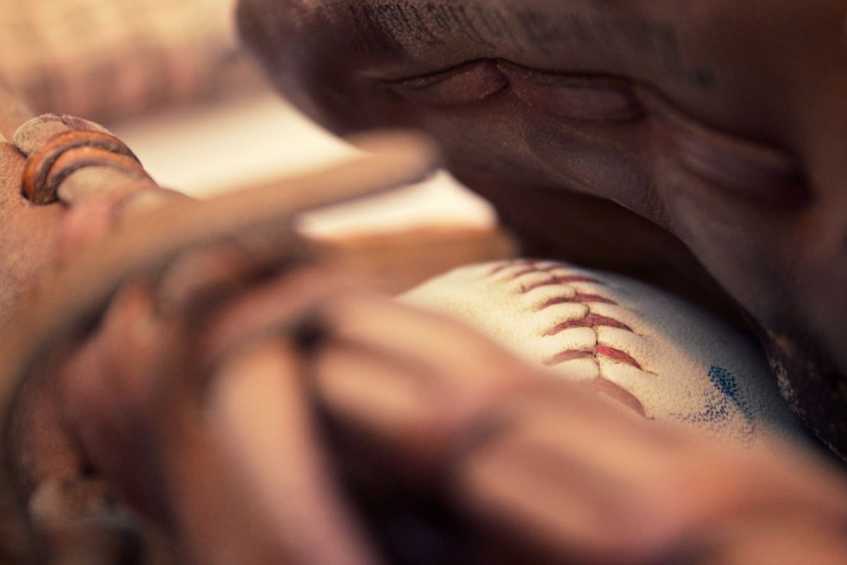
I want to repeat an often used phrase we used to use from the major league bench directed towards the umpire. This was a facetious comment, of course, and definitely not one that youth players should ever use. It went like this, "You're missing a good game."
The reason I repeat that line, and once again something a youth coach should never use, but if you are missing these podcasts or not recommending them to a youth baseball coach and parent, "They are missing out" of some of the best coaching tips you will find anywhere. This podcast is "SomethingWorth Catching."
We want to welcome you to another episode of Something Worth Catching. I'm with my partner, Sam Zagorac, the owner and head instructor at the Diamond Edge Academy in Willowbrook. Sam, some of the high school kids will be playing even though it's 38 degrees and I'm not sure what the wind chill is. Where do you draw the line with your young ballplayers?
50 degrees. I don't want to be out there, the parents don't want to be out, the kids, as much as they want to be out there, after the first inning are freezing. They don't know how to keep warm and it's hard. Nobody wants to be out there at that time.
It's harder on the parents than the kids. They at least get to run around and stay a little bit warm. The parents are the ones that freeze. It only takes one swing of the bat on a cold day where the kids shy away from when they even swing the bat and make contact. That doesn't serve any purpose.
When you got a parent walking in with a snow suit on or a long down coat, it's not baseball weather.
Our goal with these podcasts is to help young ballplayers and coaches and parents of young athletes to improve their game and to find ways of having fun when they're playing. Sam and I, together we have 45 years of experience coaching youth. We feel we have something to offer. We invite you to pass this information on to your friends and teammates and other coaches so they can benefit from our knowledge. Sam, welcome.
Thank you, Jack.
What is a fielding drill that you can suggest to youth coaches that they may not know?
From a ground ball standpoint, and this is done even at the Big League level, the pro level, spending three years at spring training involved with the Chicago White Sox, having kids work on their knees and just let them use your glove in their hands and how to get down in front of balls and be able to get their nose truly down on the ball, create good posture with their spine and their chest being down. Also get them to use just their gloved hand. I've said this for twenty years, if we can figure out why putting a glove on someone's hand forces a youth kid to turn their glove upside down, we'd be a millionaire. You take their glove off and they work their hand really well. As soon as they put their glove on, they want to try and catch everything with their palm up to the sky. Getting them to understand how to use their hand, and then get their glove to use as an extension of their hand is where I would start, and doing a lot of stuff on the ground on your knees; basic fundamentals, how the hands work.
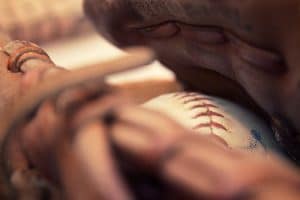 Coach: If we can figure out why putting a glove on someone's hand forces a youth kid to turn their glove upside down, we'd be a millionaire.
Coach: If we can figure out why putting a glove on someone's hand forces a youth kid to turn their glove upside down, we'd be a millionaire.
It's like a hitting drill where I say, "If I got every young kid at six or seven years old, I'd probably start them with no stride." It's the same way with fielding, starting kids off their feet. They tend to do things correct. The more they do it on their knees and they get those hands out front, they really learn how to receive the ball. Once they can do that, then hopefully they can translate it when they stand up and start to field them. One drill that's a little advanced that I've tried in the past and I thought was very successful is I have my first baseman, after a ground ball is hit, right when the fielder fields the ball, they'll flash a number with their bare hand as the player gets ready to throw. I always thought that was a great drill because the fielder made them focus on their target. I've been there myself where I'm so relieved I caught the ball then I relax and forget about making a strong throw and I throw the ball away. By having them, immediately after catching it, look for that number, it refocuses them where they want to throw the ball. More often than not, bad throws come from a mental error because they're not focused, as opposed to just not throwing the ball away. It's a drill that coaches can try. Even playing catch in warm-ups, it's a fun way to do it. Just have the receiver flash a number and they have to yell out the number as they're throwing the ball. It gets them focused on their targets.
What are some baseline drills for youth ball coaches out there?
I like players to learn to make their own decisions on the bases even at young ages. I don't like them to have to rely on the coaches too much because it takes a while for the voice to travel. They don't learn the game as well because they're relying on their coach too much for decisions. The only thing I always ask kids, "If your mom is yelling run and your dad yelling stop or stay, what do you do?" They're in a tough spot. I say, "If you learn to make your own decisions, you don't have to listen anybody else." Then what I'll do is I'll have ballplayers start at home plate. I have a coach at third base and a coach in the outfield. They swing the bat as if they're in a regular game and they're hitting the ball towards the first coach. The first coach can either field the ball or he can look behind them. At that point, the runner takes a quick glance and if he's fielding the ball, they run through the base at first. If he's looking behind them, they know the ball got to the outfield and they have to work on rounding the base.
My other coach is out in the outfield and he either has his back to the player or the runner can keep running the second, or if he's throwing the ball in, the runner has to hit the brakes and go back to first. It makes the runner responsible for making their decisions and learning to find the ball. That's something that's very important. You can't be a good base runner unless you always know where the baseball is. Once again, a little advanced but it gets kids thinking. I'll even do it with young kids and over time, they get better and better at it. The one problem with it is making sure kids aren't staring at the ball the whole time after they hit it. Another thing you want to teach them is how to run fast and just glance without having to turn their body and stop.
You have to know where the baseball is at. The best base coaches are the scoreboard and the baseball. The scoreboard is going to tell you whether or not you're aggressive or not. The baseball will give you an idea of whether or not I'm going to advance and where it's at. That is an extremely important skill to learn. One that we'll use regularly is the two-base drill where we've got half the team at home plate and half the team at second base. The guys at the plate will pretend he hits the guy in second base, the guys lead off in a secondary and he's going to score. The guy hitting is going to go to second base. You're always being aggressive. You're always thinking about two bases. You're working out and cut your secondary leads at second, your cut is around third and the guy in the box is working on getting out of the box fast and get to second base. Good base runners put pressure on the defense at all times. If you can do that and by putting the ball in play, you're putting pressure on defense and making them make good plays consistently. You win some games on the bases. You can lose some games too.
That's one aspect of the game. I don't have kids watch too closely as batters base running out of the box. They hit singles and they're pretty happy with getting their single. They pretty much know the outfielder is going to field it at that level so they slow up right away. Whereas at the youth level, you'll never know what might happen. To teach them to run hard all the way through and make the defense stop is so important.
You are seeing more guys at the Big League level now that are taking little ducks snorts or realizing an outfielder will make it a little easy to a base hit in the gap a little bit or taking the advantage at second base. There are some players in the game that are doing that. I like to see more do that.
That goes back to the manager and the coach. He demands it out of the box. Some of your better managers, they are not afraid to either tell a player or even sit a player if they dug it too much. That's one part of the game I like to see improved at that level. Moneyball changed things forever. What are your thoughts about working the count in youth baseball?
From the analytics side as you get older, there's so much information out there now. OPS goes up the longer the at-bat goes out. That has been proven true. On the flipside, still trying to be aggressive early in a count is an important key too. Working the count in the youth levels, it doesn't really mean much to me. I want kids to be aggressive. I want kids to be putting the ball in play, swing the bat. Let's not sit there taking strikes. At the youth level, you're trying to get pitchers to throw first pitch strikes and stay away from the walks. I'm not a big believer in working the counts outside of maybe the sophomore year at high school into the varsity year, especially now that they put the pitch count in the play in high school. You face a dominant pitcher, you're going to try and work him a little bit, and try to make him throw some pitches early on. I think at the youth levels, just go up there and hit and go up there and swing. Put the ball in play and have some fun.
This is a hard concept sometimes for parents to understand, but every hitter has their own personality. Some kids just refuse to swing early in the count. It's just not them. I was like that. I always felt cheated if I made an out on the first pitch so I liked to work the count. It was naturally just a part of my game. Some kids are that way. A lot of times it may be a lack of confidence, which isn't a great thing. You have other kids that go up there and they're ready to swing. They never saw pitch they didn't like. It works itself out a little bit at the youth level. I never like to force a player into something they're not. To force them to have to swing when they're not comfortable, I don't think is good. To force other kids to take more pitches because they swing too early is never a good thing either.
I think always being aggressive is better than being passive.
I like your point at the high school level. That might change the game a little bit, how coaches look at it with the pitch count. It could add a little more of a Big League feel to the high school level.
What do you suggest when parents say their child can throw strikes but not at much speed or there's no velocity there?
It's a function of doing it more often and using your body correctly and using your big muscles correctly. If they can throw the ball fundamentally sound, then it's just a matter of going out and using your arm more, kids throwing a lot more. It's always a plus to throw strikes of course. Some kids can throw strikes and they have to learn to throw harder by using their arm more. On the flipside of it, you have your kids that throw hard and can't throw strikes. I always encourage kids to throw hard, as hard as they can, fundamentally sound. Speed will come if they use their arm more. Kids in the warmer states maybe have a big advantage to throw eight, nine months out of the year, whereas kids up here can only use their arm three, four, or five months, and that can make a difference. The speed will come if kids keep working at it and throw enough.
I think throwing strikes is extremely important. If they throw strikes, you force them to put the ball in play. There's still a chance they can hit the ball at somebody which now becomes an out. You can't throw a strike so you walk a guy. In youth baseball, it's very difficult to throw anybody out. All of the sudden, you steal second, you steal third. There's a wild pitch. Now they've got to run without even swinging the bat. Velocity comes with age and maturity. Velocity also comes by getting stronger physically, whether it's outside doing long toss or whether it's in the gym getting those muscles stronger and becoming a better athlete. Being effectively wild with velocity, getting someone who lights up the radar gun who cannot throw a strike really doesn't do you much good. There is an important element of throwing strikes. Even if you throw hard then you throw even slower, which makes your fastball a little bit faster and you can change speeds a little bit. You go from slow to slower to slowest. There are ways to be able to pitch without throwing hard.
Sam you mentioned scoring runs without putting the ball in play even. What about at your level? Do you have dropped third strike or do you not?
We do. A dropped third strike I believe is in 11U. I don't agree with it. People before us have spent so much time trying to speed up the development of the game at 10U and 11U. You have lead offs and bases are 65 feet or 70 feet. Catchers aren't even strong enough. They'll throw the ball at second base and it becomes more of a track meet than it is a baseball game. For me, naturally up until maybe the age of twelve, because then it eliminates the force out at second base. Now you're middle infielder's development side, you get no development. At practice, you can work on forcing out the second base, but in a game you're not going to have a force out because you're not keeping a guy close. All of a sudden, he steals the second. Almost every play in the ground goes to first. From a development standpoint, these guys have sped up the game so much. They've done a little bit of injustice to the game.
The Little League rules still have those things. In a way, they have some nice rules still for kids even though they have some things that can be better too. Sam, what books can you recommend to baseball parents and players?
C (image of book): Title of book
There are books that are out there that are skill-based. There are books that are out there that are mental, sports psychology-based. Any kid who reads is a plus. From a parent's side, there are some good parenting books out there in regards to how to deal with your son both on the success and the failures. High school kids, anything that's written by Brian Kane; I'm a fan of a book out there called, Heads-up Baseball. HA Dorfman is another one. He's passed away but he's the Godfather of the mental conditioning side for athletes in baseball. He's got the mental aspects of baseball. All of them which I've read are great. Kevin Long, the hitting coach for the Mets, wrote a book called Cage Rat, which is entertaining, a little bit of the life story of him. In terms of that, there's a lot of good stuff on YouTube. There's a lot of bad stuff on YouTube. Getting them to read anything in relationship to the mental side of that and the mental conditioning is important.
Parents reading some parenting-type books is good that revolve around the sports of their kids. With kids, I like to recommend some biographies once they get to be a certain age where they can understand the books. So many players have interesting stories out there. By reading them, kids find out that they didn't just grow up as super stars and became Major League players just because they were born into baseball or something. There is so much hard work and adversity that everybody had to come. Just reading about Jackie Robinson's story and things like that can open up so many eyes to kids. So many the kids, they have it made, in a sense. By reading books like that, they realize it's all not easy and not everybody just had it made.
It's good to read about those players who have overcome some adversity. Baseball is a cruel game. I've had this conversation with one of my high school guys. They had opening day and he had a rough start. He's 0 for 3. The game is cruel. You're going to have good days and you're going to have bad days. The guys who play the game at an even keel are the ones that find the most success in the game. Roger Clemens had made a statement that I use often. He said, "I don't let the results of my last pitch affect the next." That's the same thing with the hitters. You can't let the result of your previous swing affect the next one. You've got to have a short memory in this game.
It's a cruel game but you have to understand the nature of it. So many of these kids have worked hard all winter and they put so much on the first game or two of the season. They feel crushed the minute they don't get a hit. It's a long season and your work will pay off sooner or later. I try to make that message throughout the winter that no matter how hard you work, it doesn't guarantee success. In the long run, it usually will follow.
What are some of the ways to help players mentally to improve their mental game? You've played at the highest level there is. We've had these conversations that mentally you struggled at times, and that was a struggle of years and a fight day-to-day. It's more of a struggle with more players than they lead on.
I definitely had a lack of confidence at the Major League level and that affected me. My issue was that I just didn't know how to do things even though I could do them. I really pass on the message to kids to learn to understand the fundamentals, not just do them and learn to make adjustments based on what you know. So often, you just need a little tweak here or there. The more you have learned about yourself and your strengths, your weaknesses, about the fundamentals, you're going to be able to make those little adjustments and that can turn you around really quick. I often tell kids, "If you go 0 for 20, 0 for 25, the high school coach may bench you. Whereas if you go 0 for 10, come out the next day because you have worked on something and made the adjustment and you get two or three hits, you stay in the lineup forever." It's definitely a lot of mental adjustments there that can help. The other thing with young ballplayers is questions. I just don't think you can ask kids enough questions that challenge their knowledge of the game and how they do things. I'll also often give them a game scenario, say, "We've got runners here and here and the ball is hit to you, what are your options?" to get them to think about things beforehand. The more they can mentally rehearse things and answer these questions, the better prepared they're going to be in games. I don't just let them pass on their answer. I try to get an answer out of them and then I'll teach from there.
Getting them to force to communicate is important and force them to think. I do same. I'll ask a lot of questions. I tell them prior to, "I don't want you to tell me what you think I want to hear. I want you to tell me what you think and give me some reason."It gets back to the accountability. The older guy says, "This is your swing, not mine. We're going to find out a way to figure out what works best for you."That may mean, "I've got to look middle away, I've got to look middle in."I have an approach to understand that and be able to hit to your strengths mentally, knowing that. I'll use the example as you have a Math test. You can study for a Math test and be completely prepared and go into that Math test and get 100%. You can know you have a baseball game and you can mentally prepare and physically prepare for that game, and know what the pitcher is going to throw and what to do, and you can go for three. You can have three great at-bats but you can be over three. Try to put things in that context so they understand that you know what has happened in the past is gone. You can't pick up the 0-4 by all of a sudden going for 4-4 and think that that's picked up 0-4.It's live the day and live the game for each at-bat.
I tell kids this all the time, "No matter how good you are, you're going to have maybe one month out of the season where things just come easy and you're stroking the ball well and it just seems like there's nothing to it. The rest of the season, the other five months of the year, it's always a struggle. It's a little of this to adding a little of this. You want it a little bit different and it's just not that easy. You have to be ready to grind it out for most of the season. No matter how good you are, the pitchers will adjust. You have to learn to adjust also. It's just not that easy where it's just going to all flow all season long."
I try to put kids in those situations in practice to get them to think, where they feel uncomfortable in practice to the point where they'll feel comfortable once they get outside. I see it all the time, too. When you get outside, you get coaches that start yelling at kids about situations. They've never gone over that situation in practice. Now they're expecting a nine or ten-year-old to be able to respond to that. As a coach, it's our job to teach that situation prior to.
Beyond to what they teach them on the field, there are things they can teach them about sportsmanship and things like that also. Sometimes kids act the wrong way but they've never been taught how to act the right way. Coaches are responsible and parents for that also, teaching beyond the game and not just expecting things just because you expect them of them. The kids have to be taught how to act as well as how to play. Sam, it's been great talking to you. What's new here at the academy? You can let people know how they can reach you for questions or for lessons or whatever here at the Diamond Edge.
Things here are changing. We're adding more to the vision that I've wanted here with everything under one roof and soon to be finalizing partnership with an academic center that's going to start doing some tutoring and college counseling. We've got the Sports Performance Center, which is up and running. We are moving forward to with the recovery room with cryotherapy and NormaTec and all that stuff. It's exciting around here. We're here to help your players through the season as well.
This falls into what I was just saying about teaching kids more than what's on the playing field, dealing with their academic life and other things that are so important. Sam, how can they reach you here?
The website here is www.DiamondEdgeAcademy.com. The number here is 630-601-7171. Feel free to send me an email as well, [email protected]. We can help from baseball to softball and everything in between.
For people out there, I can be reached at www.BaseballCoachingTips.net. You can also find my books there including Raising An Athlete, which is a parenting book to help parents with bringing up their young ballplayers. I have a book coming out called, Creating a Season To Remember, mostly for coaches but I encourage parents to encourage their coaches to get the book or to buy it for them. We look forward to having you and telling your friends about our podcast. As always, we have a story here at the end that we would like you to listen to and pass on to your kids. Sam, it had been great.
As always, Jack. I look forward to our next time.
Thank you.
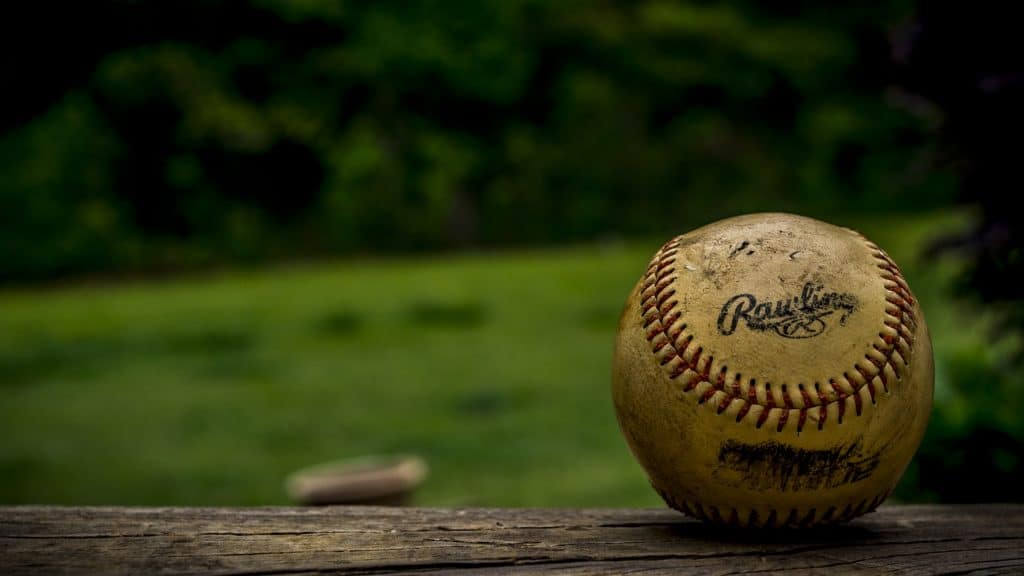 Coach: God-given talent is one thing, but in order to improve and to perfect something, there's a lot of work and determination that goes into that.
Coach: God-given talent is one thing, but in order to improve and to perfect something, there's a lot of work and determination that goes into that.
We have another motivational story for your teens. There was a superstar Major League ballplayer who had a great swing and a great career. One day, a reporter called him up and said, "I'd like to come in and do a story about your natural swing." The ballplayer said, "What's that?" He goes, "You have such a natural swing. I'd like to come in and do a story about it." The player told the reporter, "Come in tomorrow about an hour before batting practice, about 3:00." The reporter shows up and the ballplayer says, "Come with me." The ballplayer went over to the batting tee and took about 50 swings to warm up. He then went over to one of his hitting coaches and the coach flipped him another 75 balls. Then he went to the batting cage where the coach pitched to him another 50 swings or so. At the end of that time, the ball player goes over to the reporter and finally says, " What is that about my natural swing?" The point is there's no such thing as a natural swing. The ballplayer want the reporter to know that that swing has come about because of all the hard work that he put into that swing. There's no such thing as just being a natural, especially when it comes to hitting a baseball. It's important that players realize that God-given talent is one thing, but in order to improve and to perfect something, there's a lot of work and determination that goes into that. Thanks and we'll see you next time.
After playing major league baseball, Jack Perconte has taught baseball and softball since 1988 and offered valuable coaching training too. He has helped numerous youth players reach their potential, as well as having helped parents and coaches navigate their way through the challenging world of youth sports. Jack is one of the leading authorities in the areas of youth baseball training and coaching training advice.
All Jack Perconte articles are used with copyright permission.There are 0 comments on "Baseball Coaching Tips | Something Worth Catching EP10 | Be The Best Coach You Can Be"
chandler allen says:
"Hi my name is chandler, i’ve enjoyed..."
On Wanting to tryout for summer ball. as an 18 year old
david graham says:
"With no current MLB team in Canada,..."
On With no current MLB team in
Charles Chavez says:
"To All Coaches: Do you have13U or..."
On Looking for Games